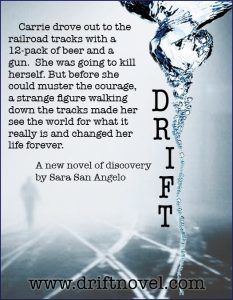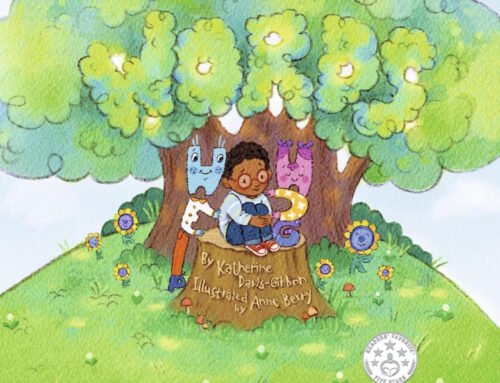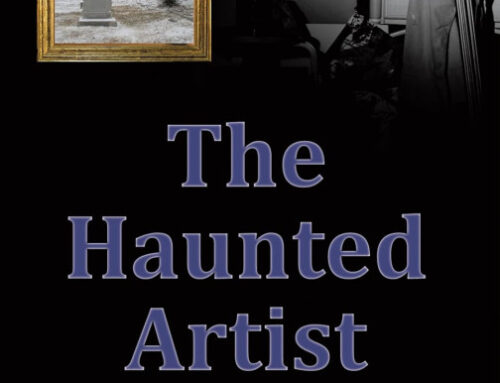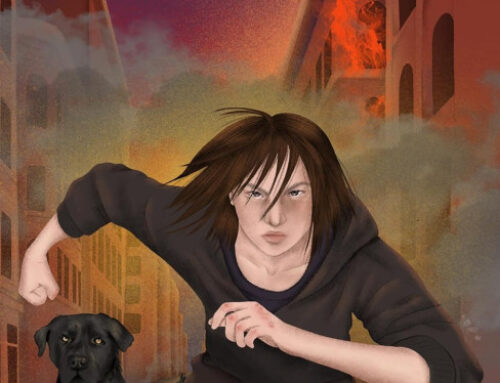 As readers we tend to have a hidden agenda as we pore over the words of a new story. Sometimes we just want to be wowed or possibly brought to our knees. There are times when we want exactly what we just had either in another story or by another author. There is a mental checklist we often carry with us that is comprised of what we consider a requirement to a good read. And as we progress through the story we mark off these specific items and at the end we quickly calculate the score to determine where the story fell within our tastes.
As readers we tend to have a hidden agenda as we pore over the words of a new story. Sometimes we just want to be wowed or possibly brought to our knees. There are times when we want exactly what we just had either in another story or by another author. There is a mental checklist we often carry with us that is comprised of what we consider a requirement to a good read. And as we progress through the story we mark off these specific items and at the end we quickly calculate the score to determine where the story fell within our tastes.
One item on my checklist is characterization – if you have a boring ass character or characters then I’m pretty much done. I don’t care if you have the greatest paragraphs penned since James Joyce; if the characters are stiff as a pecker on Prom night then my time is just being wasted.
The key to great storytelling is well-observed characterization and detail of daily life. Sara San Angelo has done this with her novella Drift. She has succeeded with a hard bitten realism and storytelling instincts that keep the narrative moving despite a plot that seems to drag in spots.
We open with a twenty-something girl named Carrie who has driven herself out into the boonies, parked near a set of railroad tracks and is preparing to blow her head off. Just as Carrie places the barrel into her mouth she begins to have flashbacks of what has led her up to the deed she’s about to perform. San Angelo does a great job weaving the flashbacks into the storyline without allowing them to take complete control. They offer a very vignette aspect; each one is crisp with detail and emotion.
She had me locked in. I was really digging all the under layers of the story and all these rich full characters and then my “radar” went off with the introduction of her savior: a “handsome hobo train hopping” guru who stumbles onto Carrie’s attempted suicide by happenstance. This is where the bottom of the plot falls out. Through the hobo and Carrie’s interactions we uncover the real reason for her downward spiral – a complete spiritual exhaustion suffered while chasing down the American Dream.
Jesus, I thought. That’s a really big theme to try and tackle in any novel, but a novella – well, that’s just – suicide.
After seventy pages she makes the decision of leaving everything behind and following her “handsome hobo” across country to Oregon. Carrie is no longer weighed down, and struggling to stay afloat in life, but rather she is now a drift in it. This is where we as readers are left as she watches him bathe in the creek.
And then the words “To be continued.” show up like a drunken uncle at Christmas. What? I felt like I had literary blue balls. I went and looked up San Angelo and her site www.driftnovelcom. She calls Drift a novel, but really it’s a serial. Despite the “handsome hobo” I thought the writing was good, the storytelling was excellent, but this was just part one. I felt drawn to the story and the character and wanted to know more so I took the opportunity to email San Angelo. She was kind enough to answer a few of my questions.
Scott Rogers: What is your writing process?
Sarah San Angelo:Well, basically I sit at my computer and stare at a blank screen for a really long time until the right words come to me. It’s really a laborious process. I’m surprised I put myself through the repeated torture. But seriously, anyone can make up stories in their head all day long, but the true gift is putting those images into words, the right words to convey a different reality. That is where the ordinary person stops and the writer begins.
SR: What is the last great thing you read?
SSA: I just finished a really good book, The Divine Proportion: PHI in Art, Nature and Science. I’m fascinated with numbers and physics and the design of life and nature.
SR: How did this story come about?
SSA: It started out as a short story about four years ago and just continued to grow. I always knew I wanted to write a book, and in my writing I like to convey messages–little bits of enlightenment I’ve learned along the way that many people are not privy to in their current realities. In my travels I learned many of those little bits. And they all culminated into a central message I wanted to convey in my writing.
SR: You say were a squatter for a time – exactly what does that mean and did that influence your writing?
SSA: Definitely. Squatting is really a movement, tied to Punk Rock but it is ultimately a state of mind. It is the ability to let everything you have go for true freedom. It is homelessness without caring and being able to go wherever you please, whenever you please. When I was squatting, there was a whole generation of kids my age doing the same thing. It was like the 60s movement of their parents but with a lot louder music and a less-than-peaceful message. We hitchhiked, hopped trains, slept in abandon buildings, ate out of dumpsters (that’s were the ordinary person stops and the true survivor begins, folks). We met up in cities and drank under bridges and just had a great fucking time.
My central message began to solidify as I met more and more miserable people in this country– the 9-5ers rushing to work with frowns and blank stares, only to work 40 years in a crappy job and have the government take most of your money. And the cops that harassed us in every city, just because we were dirty and didn’t have places to live. Why? Once you are outside of a system, you can see it for what it truly is, and we were way outside. I started to see all the systems of control put in place to keep people buying crap and go in debt so The Powers That Be can sit behind three gates and eat fish eggs. It is very scary, and I am trying to wake people up. But TPTB are winning now because they are not hiding it anymore and people are still not mad. Too many pharmies and television I suppose, sheeple.
SR: A lot of who the protagonist is is defined by who she was or who she is not. Was this a deliberate choice or something that arose from the writing of the story?
SSA: A little of both, I think. I wanted to show her going through a transformation of thought. Something sort of like what I went through before I started traveling. And how she reacted to the circumstances of life up until that point. Instead of boring the reader with several chapters on “who she is,” I wanted to let her actions (or reactions) speak for her. I think we are all defined by our actions or reactions to situations and I think sometimes it is easier for people to define themselves by who they are not, because I believe it takes the most advanced of souls to figure out who they truly are, and unfortunately there aren’t many people out there like that. Our society systematically ignores the true nature of who we really are. The next part in the series is going to go more in depth into all that.
SR: Kryptonite was Superman’s greatest weakness, his Achilles heel. What would you say is your greatest weakness as a writer? How do you work to overcome it?
SSA: Procrastination; which is why the second part of the story is not out yet. Writing consumes a lot of mental energy and it’s tough to get in that state of mind. I don’t know if I’ll ever overcome it, but I work well under pressure, and I remind myself I can get really drunk after I make my deadline.
SR: What are you working on right now?
SSA: Procrastinating.
SR: Do you have a favorite coffee shop? What’s it like there?
SSA: I don’t drink coffee and if I did, I would probably get it from the gas station because those places are expensive. Now I could tell you about some really cool bars around here…
SR: The form of this piece is interesting. Why is it organized and divided as such?
SSA: I think the first part of it mimics the randomness of though. Thoughts are not linear in nature, but more like fractals where one spawns a hundred others, apart from time. Ask anyone who has ADD. She’s kind of going through a slow motion version of your life flashing before your eyes before death. And then the handsome, young train hopper comes into the picture and she gains back a sense of purpose and the story continues along the main timeline.
SR: What would you name yourself if you were a pirate?
SSA: Pirate Space Potato.
SR: What is the best Prince song to accompany love making?
SSA: “When Doves Cry” of course.
SR: What is your favorite curse word?
SSA: Fuck. It’s just got that emphasis to it that you really need in a fucked up situation.
SR: What question should I have asked?
SSA: I think you’ve covered a lot of bases.
SR: Do you consider yourself a Southern writer? And what does that mean to you?
SSA: Not really. While I absolutely love it here, when I think of Southern Writers I think of plantations and sagas between families and class divides. I guess I could be called a Nuevo-Southern Writer in that I write in the southern spirit, but with a modern, hardline approach.
SR: What’s your favorite band right now?
SSA: Subhumans and Citizen Fish. And we are getting ready to go see the Butthole Surfers in Atlanta. A real treat.
SR: Why did you decide on the route you have taken as a writer with regards to Self Publishing and how has this worked out for you?
SA: I’ve been shopping my works around to literary agents for quite sometime now, all with the same response– “too fringe” and “not the subject matter we are looking for.” When Financial Armageddon hit last year, I figured I better get it out in some form before it is too late. I researched self-publishers or Print on Demand publishers but found that for me do that, I would have to sign over the rights to my book and I still want to try and publish it traditionally, so in typical DIY fashion, I just turned it into a PDF without an ISBN that you can download on my website www.driftnovel.com for $3.14.
You see, if a company, any company provides you with an ISBN number, they effectively own the rights to your book. And you can’t sell anything in a bookstore or on Amazon (except Kindle, my book here: http://www.amazon.com/dp/B002KW4QBA) without this International Standard Book Number. They have really created a monopoly in the publishing industry. Hence royalties, where they pay you a percentage of what they make on their “product.” I would love to go with some independent publishing company, but I am holding on to my rights until I get an offer I can’t refuse, or if the book takes off in it’s current form and then I can buy my own ISBNs and print it myself, which would be great. But since only a very small percentage of the population reads novels on their computer or hand held devices, it is slow going. But I persist, none-the-less.
SR: The story is not complete – what are your plans with it?
SSA: The two main characters are going to have some wonderful adventures. Some good, some bad, but always gripping.
SR: If you could speak to a whole room full of high school kids what would you say?
SSA: Life is one big classroom. Learn everything you can in it.
SR: Who are your favorite writers and why?
SSA: I love the greats like Vonnegut, Burroughs, Bukowski and all the Beat guys. Guys that make you see the underbelly of the world we live in. And I love horror, Clive Barker, HP Lovecraft, Stephen King. Sci-Fi like Asimov and Bradbury. I could go on and on.
SR: Have you read my book yet?
SSA: No, but it sounds very interesting. We need more people on the same wavelength.
Get an Editorial Review | Get Amazon Sales & Reviews | Get Edited | Get Beta Readers | Enter the SPR Book Awards | Other Marketing Services






















I love that I got to read a review of the full novella after personally reviewing only the first page. Sounds like an intriguing story by an intriguing writer.
Enjoyed the interview after the review, as well.
Like this a lot.